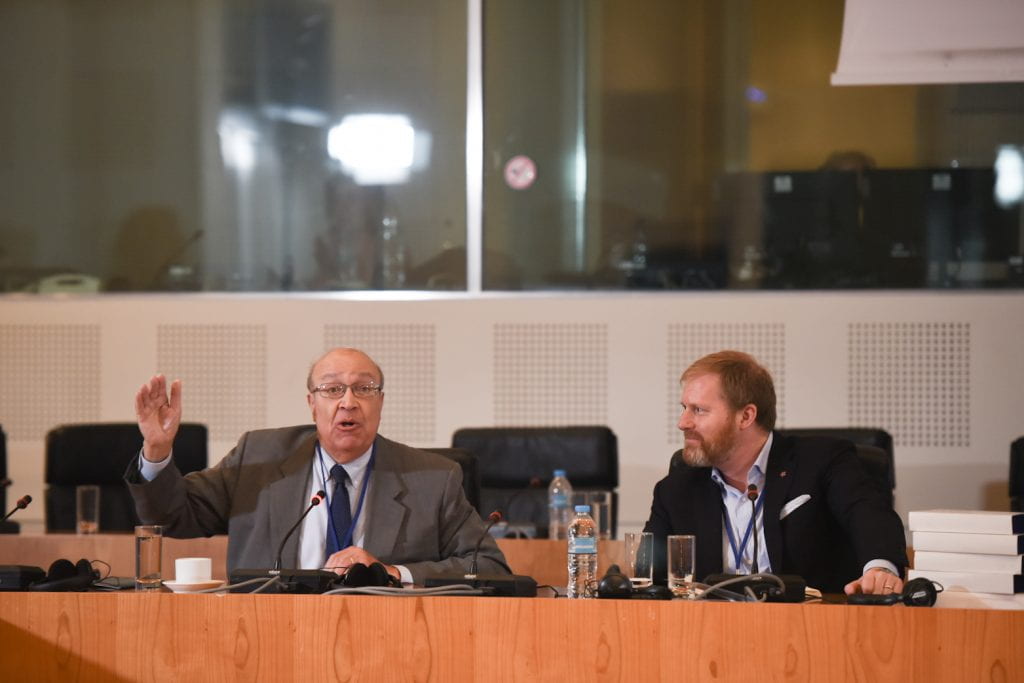
On June 2, the USC Cybersecurity Initiative co-hosted an international conference on cybersecuring democracy in Athens, Greece — home of the world’s first known democracy.
Right across from the world’s first Acropolis, the conference centered on cyber security, cyber threats, and democracy by starting with an opening dinner and continuing on with a series of addresses the next day. Hosted in coordination with the University of Piraeus in Greece, it was attended by some of Greece’s leaders in cyber security.
Supported by a gift from Google, four presenters from USC were able to attend and lecture at the conference. The program also included an address from George J. Tsunis, US Ambassador to Greece, at his first public appearance since his arrival to Athens.
Adam Clayton Powell III, executive director of the election cybersecurity initiative, said the conference was even more effective than he had hoped.
“It wound up being more successful than our Greek hosts imagined,” Powell said, who also gave a keynote address at the conference. “We were able to represent USC there in strength.”
According to Powell, Tunis enjoyed the conference and invited the Cybersecurity Initiative back for future collaborations. Other speakers included Clifford Neuman, director of the USC Center for Computer Systems Security, Sarah Mojarad, from the USC Viterbi School of Engineering, and Max Nikias, former USC president.
It was at the conference that Powell learned that relatively new archeological research shows evidence that there was election fraud as early as 490 BC in Greece.
“Right after democracy was invented, people started trying to cheat,” Powell said. “You think that election fraud is recent? No. It goes back more than 2,000 years.”
With the importance of protecting democracy in mind, the Election Cybersecurity Initiative this year is presenting a series of weekly workshops aimed at teaching election officials, campaign managers, and civic leaders to catch hacking and other forms of cyber attacks.
These workshops, which first began after the National Governors Association approached the initiative following the 2016 elections, are a national effort funded by Google and teach defense tactics for state and national elections.
Powell said that students work closely with the Election Cybersecurity Initiative to research active campaigns and candidates running for office.
“This has really been a national organizing campaign, and students at USC help drive it,” Powell said.
From resilience to crisis response, these workshops will continue every week throughout the rest of the summer.
“Unfortunately, people in politics are prime targets for cyber hacking, and some of the hackers get through, so you need to know what to do,” Powell said.
The conference was featured in leading Greek Newspaper Ta Nea. Find the article here.